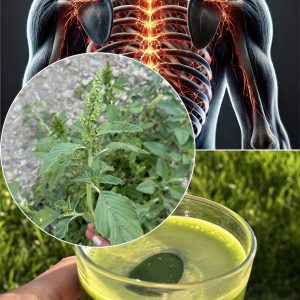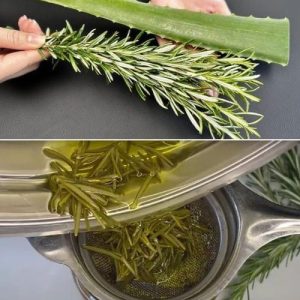Milkweed, a plant often associated with monarch butterflies, has long been overlooked for its numerous health benefits. Traditionally, it has been used by Native American cultures for a variety of medicinal purposes, and modern research is beginning to catch up with these ancient practices. This article will explore ten significant health benefits of milkweed, shedding light on why this humble plant deserves more attention in the world of natural remedies.
1. Anti-inflammatory Properties
Milkweed contains compounds that exhibit powerful anti-inflammatory effects. These properties can help reduce inflammation in the body, which is beneficial for conditions such as arthritis, asthma, and inflammatory bowel diseases. By mitigating inflammation, milkweed can alleviate pain and improve overall health.
2. Antioxidant Activity
Rich in antioxidants, milkweed helps combat oxidative stress, which is linked to chronic diseases like cancer and heart disease. Antioxidants neutralize free radicals, protecting cells from damage and promoting longevity.
3. Supports Digestive Health
Milkweed has been traditionally used to treat digestive issues. It acts as a mild laxative, helping to alleviate constipation. Moreover, it can soothe the gastrointestinal tract, reducing symptoms of bloating and discomfort.
4. Immune System Boost
The plant is known to enhance the immune system. The presence of various nutrients and compounds in milkweed strengthens the body’s defense mechanisms, making it more resilient against infections and diseases.
5. Pain Relief
Milkweed has been used as a natural pain reliever. The plant contains compounds that can alleviate pain, making it a useful remedy for headaches, muscle aches, and other types of discomfort.
6. Skin Health
Applying milkweed topically can benefit the skin. It has been used to treat warts, rashes, and other skin conditions due to its antimicrobial and healing properties. Milkweed’s ability to promote skin health makes it a valuable addition to natural skincare routines.
7. Respiratory Benefits
Milkweed has been used to treat respiratory conditions like bronchitis and asthma. Its expectorant properties help clear mucus from the respiratory tract, facilitating easier breathing and reducing congestion.
8. Cardiovascular Health
The antioxidants and anti-inflammatory properties of milkweed contribute to cardiovascular health. By reducing inflammation and oxidative stress, milkweed can lower the risk of heart disease and improve overall heart function.
9. Detoxification
Milkweed supports the body’s natural detoxification processes. It helps cleanse the liver and kidneys, promoting the elimination of toxins and improving overall organ function.
10. Mental Health Support
Emerging research suggests that milkweed may have benefits for mental health. Its anti-inflammatory and antioxidant properties can help protect the brain from oxidative stress, potentially reducing the risk of neurodegenerative diseases and improving cognitive function.
In conclusion, milkweed offers a plethora of health benefits that make it a valuable addition to natural medicine. Its anti-inflammatory, antioxidant, and pain-relieving properties, along with its benefits for digestive, respiratory, and skin health, highlight the plant’s potential as a multifaceted remedy. The following sections will delve into how to leverage these benefits in practical, everyday applications.
While understanding the health benefits of milkweed is essential, knowing how to incorporate this powerful plant into your daily routine can maximize its advantages. Here are practical ways to leverage the benefits of milkweed for optimal health and wellness.
1. Milkweed Tea
One of the simplest ways to enjoy the benefits of milkweed is by preparing a tea. Here’s how to make milkweed tea:
Ingredients: Dried milkweed leaves, hot water.
Instructions:
Take a teaspoon of dried milkweed leaves.
Steep the leaves in a cup of hot water for about 10 minutes.
Strain the leaves out and drink the tea.
This tea can help with digestion, boost the immune system, and provide general anti-inflammatory benefits. Drink it daily to maintain overall health. For flavor, you can add honey or lemon.
2. Topical Applications
For skin health, milkweed can be applied topically. Here’s how to make a simple milkweed paste:
Ingredients: Powdered milkweed leaves, carrier oil (such as coconut or olive oil).
Instructions:
Mix a tablespoon of powdered milkweed leaves with enough carrier oil to form a paste.
Apply this paste to affected areas of the skin.
Leave it on for about 20 minutes before washing it off with warm water.
This can be used to treat warts, rashes, and minor skin irritations. Always conduct a patch test to ensure there is no adverse reaction.
3. Incorporating Milkweed in Diet
Milkweed can be a nutritious addition to your diet, but it must be prepared correctly to avoid toxicity. Here’s how to safely prepare milkweed:
Young Shoots and Leaves:
Harvest young shoots and leaves of the milkweed plant.
Boil them in water for about 10 minutes to remove toxic compounds.
Drain and rinse with cold water.
Use the prepared shoots and leaves in salads, soups, or as a side dish.
These can be added to dishes just like other leafy greens, providing a unique flavor and nutritional benefits.
4. Milkweed Supplements
For those who prefer a more convenient option, milkweed supplements are available in capsule or tincture form. Here’s how to incorporate them:
Instructions:
Follow the dosage instructions provided on the supplement packaging.
Generally, it’s recommended to take the supplements with meals to aid absorption.
Consult with a healthcare professional before starting any new supplement, especially if you have any health conditions or are taking other medications.
These supplements provide a concentrated dose of milkweed’s beneficial compounds and can be an easy way to integrate milkweed into your daily routine.
5. Homemade Milkweed Remedies
Creating homemade remedies using milkweed can be a rewarding way to harness its benefits. Here’s a simple recipe for milkweed syrup for respiratory issues:
Ingredients: Milkweed roots, honey, water.
Instructions:
Simmer a handful of milkweed roots in a pot of water for about 30 minutes.
Strain the roots out and mix the liquid with honey (to taste).
Take a tablespoon of this syrup during bouts of bronchitis or asthma to help clear mucus and ease breathing.
This syrup can be stored in the refrigerator for up to a week.
6. Integrating Milkweed into Skincare
Milkweed oil can be a fantastic addition to your skincare routine. Here’s how to make and use it:
Ingredients: Fresh milkweed leaves, carrier oil (such as jojoba or olive oil).
Instructions:
Infuse fresh milkweed leaves in a carrier oil by placing them in a jar and covering with the oil.
Let the mixture sit for about 2 weeks, shaking occasionally.
Strain the leaves out and store the oil in a dark, cool place.
Use milkweed oil as a moisturizer or add it to your existing skincare products. Its antimicrobial properties can help maintain clear skin and treat minor skin issues.
7. Essential Oil Diffusion
Milkweed essential oil, though not as common, can be diffused to enjoy its aromatic benefits:
Instructions:
Add a few drops of milkweed essential oil to your diffuser.
Diffuse for 30-60 minutes in a well-ventilated area.
This can help create a calming environment and may also support respiratory health by clearing the airways.
The Promise of Milkweed in Modern Health Practices
Incorporating milkweed into your health regimen can unlock a multitude of benefits. From its anti-inflammatory and antioxidant properties to its ability to support digestion, skin health, and respiratory function, milkweed is a versatile and powerful plant. As with any natural remedy, it is important to use milkweed with caution and consult with a healthcare provider, especially if you are pregnant, nursing, or have pre-existing health conditions.
As we continue to explore and validate the traditional uses of milkweed through modern science, its potential as a natural remedy becomes increasingly clear. Whether through tea, supplements, or topical applications, milkweed offers a holistic approach to enhancing health and well-being. Embrace the potential of this remarkable plant and discover how it can contribute to a healthier, more balanced life.





